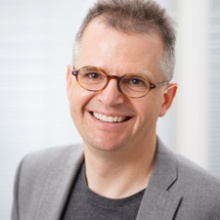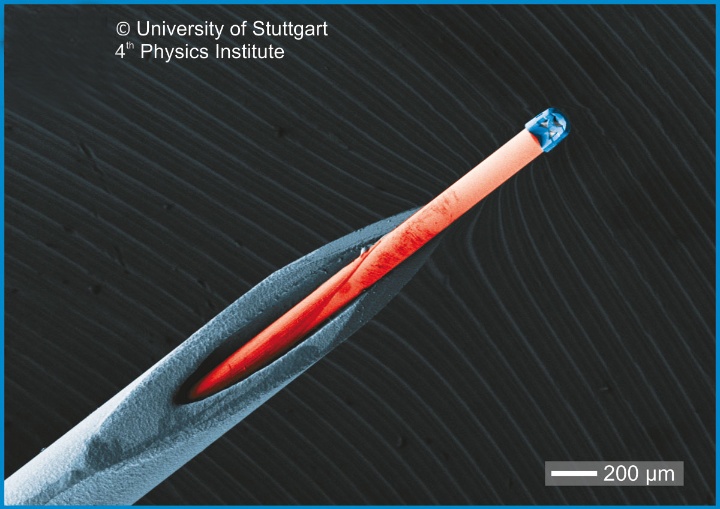The world’s smallest endoscope
Professor Harald Giessen, head of the 4th physics institute, is responsible for the development of 3D-printed micro-optical components. He and his colleagues from the engineering sciences developed the world’s smallest endoscope, which even fits through dental roots and can look into the space under the teeth. The 3D-printed micro-optical components are used in miniature sensors and miniature cameras as well as for sensors in augmented and virtual reality applications that are able to track eye movements and fit into conventional glasses. They are also suitable for miniature projectors and displays.
Micro-optical components for quantum technologies and biology
The new technology can also be used in the field of quantum technologies, where, for example, single-photon light sources are coupled into glass fibers with the aid of micro-lenses, or single-photon detectors can become much more efficient. Harald Giessen and his colleague Michael Heymann, Junior Professor at the Institute of Biomaterials and Biomolecular Systems, have also used the method in the field of biology that deals with the optical capture of individual cells. Together with medical scientists from Australia, Giessen demonstrated for the first time the use of his optical components in endoscopes that use optical coherence tomography to detect dangerous plaques in the coronary arteries of living pigs and mice as well as in human coronary arteries at an early stage before they can trigger a heart attack.
From the technology to the company
Together with the two students Dr. Simon Thiele and Nils Fahrbach as well as his colleague Professor Alois Herkommer from the Institute of Applied Optics (ITO) at the University of Stuttgart, he founded the company Printoptix GmbH, which is commercializing the technology. The research was and is supported by the EU, the Federal Ministry of Science and Research (BMBF), the German Research Foundation (DFG) within the framework of the GRK 2642 Research Training Group, the Carl Zeiss Foundation, the Ministry of Science, Research and the Arts in Baden-Württemberg, the Mobility Innovation Campus (ICM), and the Gips Schüle Foundation.
Other award-winning researchers at the University of Stuttgart



